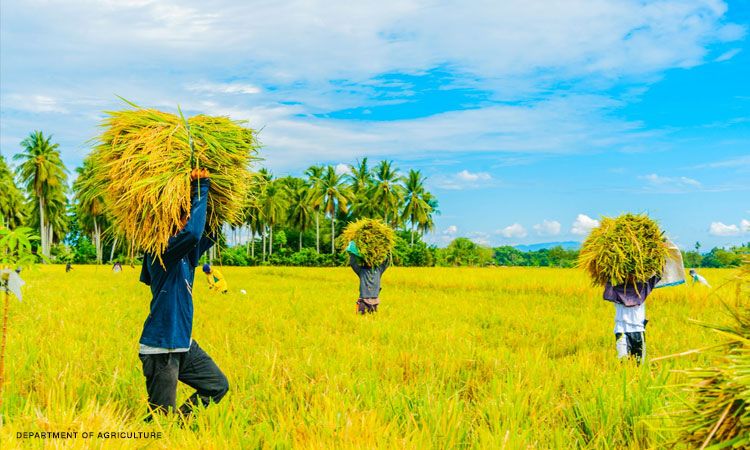
Metro Manila (CNN Philippines, May 22) – Agriculture Secretary William Dar reported on Thursday that ₱5.4-billion worth of agricultural produce from farmers and fishermen were sold to consumers amid the COVID-19 pandemic in the country.
Dar told in the Senate Committee of the Whole hearing on the government's COVID-19 response that among the said figure, ₱2.9 billion came from Kadiwa ni Ani at Kita direct marketing program of the Department of Agriculture.
Some ₱2.24 billion worth of produce were bought by local government units nationwide, while the rest of the amount were sold through Kadiwa’s retail selling, Kita on Wheels, Kita Express, Kita Online and Kita Isda on the Go.
Recently, DA launched its website as another avenue where people can buy fresh produce.
Dar said that 970,747 households in Metro Manila benefited from the initiative participated in by 441 agri-fishery cooperatives and 14,864 farmer beneficiaries.
The Agriculture Secretary assured the senators the country can produce enough supply of rice, corn, fisheries, pork, chicken and vegetables by the year-end even amid the ongoing COVID-19 pandemic.
Dar said in the Senate hearing that there is a shortage in the supply of garlic and onion, products frequently used by Filipinos in making meals.
Dar did not elaborate the reason for the said shortage, but urged the people engage in backyard gardening to plant more garlic and onion.
Backyard gardening is also a small step in maintaining the country’s food security amid the pandemic, Dar said.
"Food production is number one. The food demand is inelastic. We need to advocate to every Filipino to plant, plant, plant in their backyard," he said.
The report of Dar came as the Southeast Asian Regional Center for Graduate Study and Research in Agriculture (SEARCA) said the COVID-19 pandemic will reduce agricultural production in Southeast Asia by 3.11 percent.
In its policy paper released yesterday, SEARCA specified the regional agricultural loss amounts to $3.76 billion or 1.4 percent in gross domestic product for Southeast Asia.
SEARCA added the agricultural losses aggravated by the pandemic will affect over 100 million farmers in the region, who are mostly living below the poverty line.
“While most of the efforts are targeted within a country, it would be critical that policies supporting trade in ASEAN must be strengthened to simultaneously support productive and inclusive agricultural systems that ensure food security in the region,” said SEARCA in a statement.
The regional agriculture research organization suggested Southeast Asian governments to shift its approach in agriculture to a sustainable agribusiness and to promote a strong collaboration with private enterprises and academe in implementing agricultural programs.
The group also endorses the idea of agri-entrepreneurship, which eradicates the notion of farming as a mere job and helps train younger farmer-entrepreneurs to ensure food security in their area.









